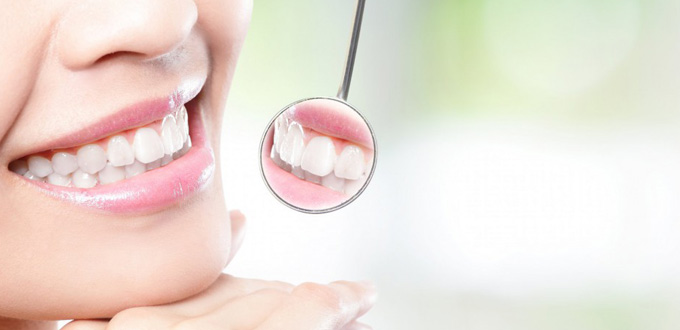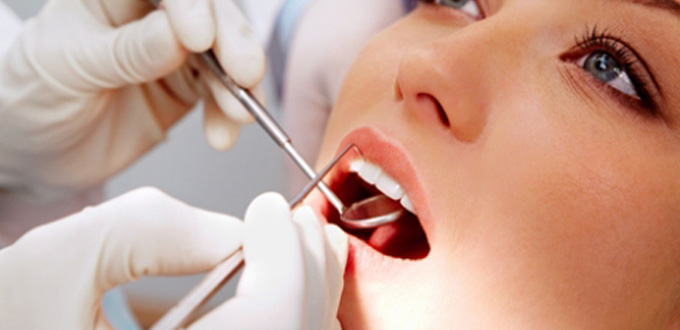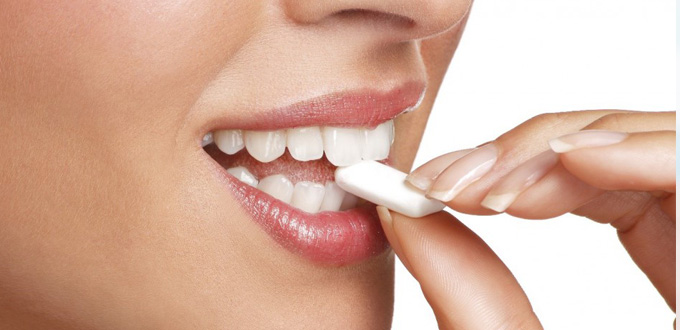Dental problems are never fun, but there is good news: Most of them are easily preventable. Brushing twice a day, flossing daily, eating properly and having regular dental check-ups are important in preventing dental problems. Educating yourself about common dental problems and their causes can also go a long way in prevention.

Bad breath
Bad breath (also called halitosis) can be downright embarrassing. According to dental studies, about 85% of people with persistent bad breath have a dental condition that is to blame. Gum disease, cavities, oral cancer, dry mouth and bacteria on the tongue are the reasons that can cause bad breath. Using mouthwash to cover up bad breath when a dental problem is present will only mask the odor and not cure it. If you suffer from chronic bad breath, visit your dentist to rule out any of these problems.
Ways to prevent bad breath:
Brushing your teeth and flossing twice a day, especially after meals that contain food and spices known to cause bad breath. Remember to brush your tongue, or try using a tongue scraper, to remove any trapped food and plaque caught in the tiny hair-like fibers on the tongue. Finish off your brushing by rinsing thoroughly with water or mouthwash.
Visit your dentist on a regular basis (every six months or as indicated by your dentist) for a complete examination of your teeth and gums and thorough cleaning by the dental hygienist.
Preventing bad breath is achievable when you have dental problems treated as they occur, such as tooth decay, gum abscesses, and abscessed teeth.
Tooth decay
Did you know tooth decay, also known as cavities, is the second most prevalent disease. Tooth decay occurs when plague, the sticky substance that forms on teeth, combines with the sugars and / or starches of the food we eat. This combination produces acids that attack tooth enamel. The best way to prevent tooth decay is by brushing twice a day, flossing daily and going to your regular dental check-ups. Eating healthy foods and avoiding snacks and drinks that are high in sugar are also ways to prevent decay.
Gum (Periodontal) Disease
Studies have shown that periodontal disease, also known as gum disease, is linked to heart attacks and strokes. Gum disease is an infection in the gums surrounding the teeth. Gum disease is also one of the main causes of tooth loss among adults. There are two major stages of gum disease: gingivitis and periodontitis. Regular dental check-ups along with brushing at least twice a day and flossing daily play an important role in preventing gum disease.

Oral cancer
Oral cancer is a serious and deadly disease that affects millions of people. In fact, the Oral Cancer Foundation estimates that someone in the United States dies every hour of every day from oral cancer. Over 300,000 new cases of oral cancer are diagnosed every year, worldwide. This serious dental disease, which pertains to the mouth, lips or throat, is often highly curable if diagnosed and treated in the early stages.
Mouth sores
There are several different types of mouth sores and they can be pesky and bothersome. Unless a mouth sore lasts more than two weeks, it is usually nothing to worry about and will disappear on its own. Common mouth sores are canker sores, fever blisters, cold sores, ulcers and thrush.
Tooth erosion
Tooth erosion is the loss of tooth structure and is caused by acid attacking the enamel. Tooth erosion signs and symptoms can range from sensitivity to more severe problems such as cracking. Tooth erosion is more common than people might think, but it can also be easily prevented.

Ways to prevent tooth erosion:
After eating or drinking acidic foods or beverages, rinse your mouth with water so that the acid will be neutralized.Wait at least an hour before brushing your teeth after consuming acidic foods or beverages to allow the teeth to re-mineralize after the acid exposure.
Cut back on carbonated drinks and try replacing them with water, milk or un-sweetened coffee and tea.
Use a straw when drinking carbonated beverages or other sweet drinks, such as natural fruit juices, which are very acidic. A straw enables the liquid to go quickly to the back of your mouth instead of washing over the teeth.
Swallow acidic liquids quickly instead of swishing them around or holding them in your mouth.
Chewing sugar-free gum can help reduce dry mouth and increase the saliva flow, allowing for your teeth to re-mineralize.
Tooth sensitivity
Tooth sensitivity is a common problem that affects millions of people. Basically, tooth sensitivity means experiencing pain or discomfort to your teeth from sweets, cold air, hot drinks, cold drinks or ice cream. Some people with sensitive teeth even experience discomfort from brushing and flossing. The good news is that sensitive teeth can be treated.
Toothaches and Dental emergencies
I can’t think of much worse than suffering from a toothache. While many toothaches and dental emergencies can be easily avoided just by regular visits to the dentist, we all know that accidents can and do happen. Having a dental emergency can be very painful and scary. Fortunately, you can do several things until you are able to see your dentist.
Never put any pain killers, including aspirin, on the gum because it can burn the gum tissue. Clean your mouth out by rinsing thoroughly with warm water. Gently floss around the tooth to remove any food particles that may be caught there. If your tooth continues to hurt, you should call your dentist as soon as possible. A toothache can result from several dental problems. Regular dental check-ups and dental cleanings can help prevent toothaches.
Teeth grinding
Teeth grinding or Bruxism, is very common in adults and can be very destructive, sometimes resulting in jaw problems. The most common causes are misaligned teeth and stress. Orthodontic or restorative dentistry can correct alignment and we can fabricate a custom a plastic guard for people to wear while they sleep to protect their teeth from the destructive forces our jaws can produce. Other prevention methods include physical therapy and daily relaxation techniques.
Unattractive smile
While an unattractive smile is not technically a “dental problem,” it is considered a dental problem by people who are unhappy with their smile and it’s also a major reason that many patients seek dental treatment. An unattractive smile can really lower a person’s self-esteem. Luckily, with today’s technologies and developments, anyone can have a beautiful smile. Whether it’s teeth whitening, dental implants, orthodontics or other cosmetic dental work, chances are that your dentist can give you the smile of your dreams.

